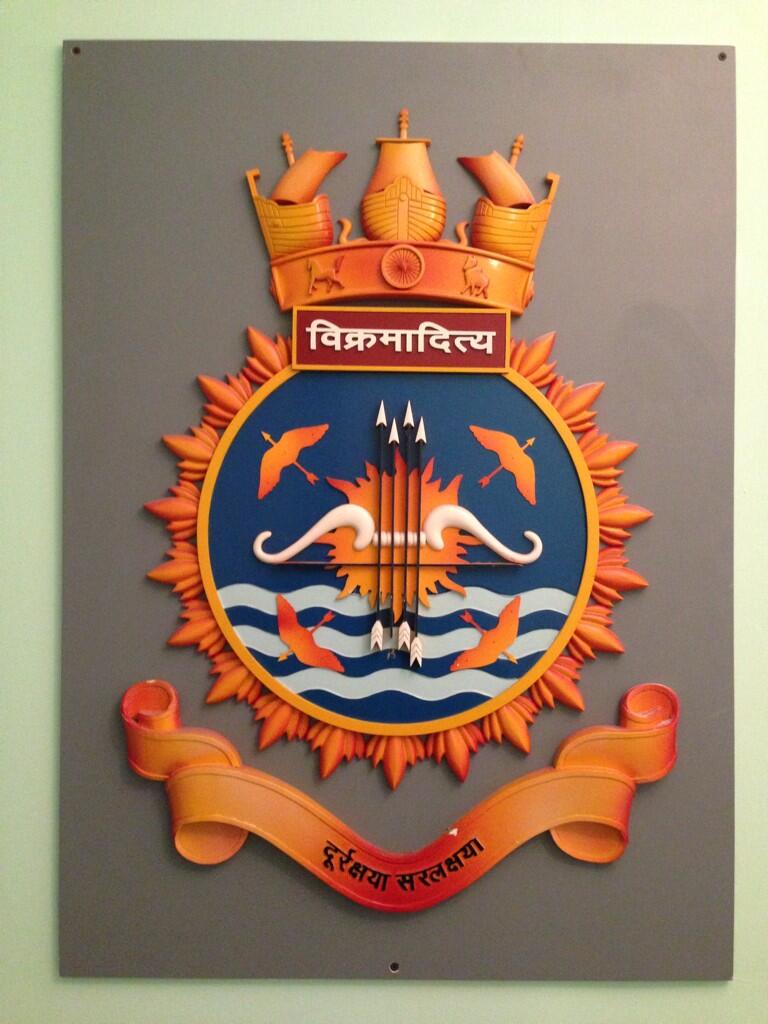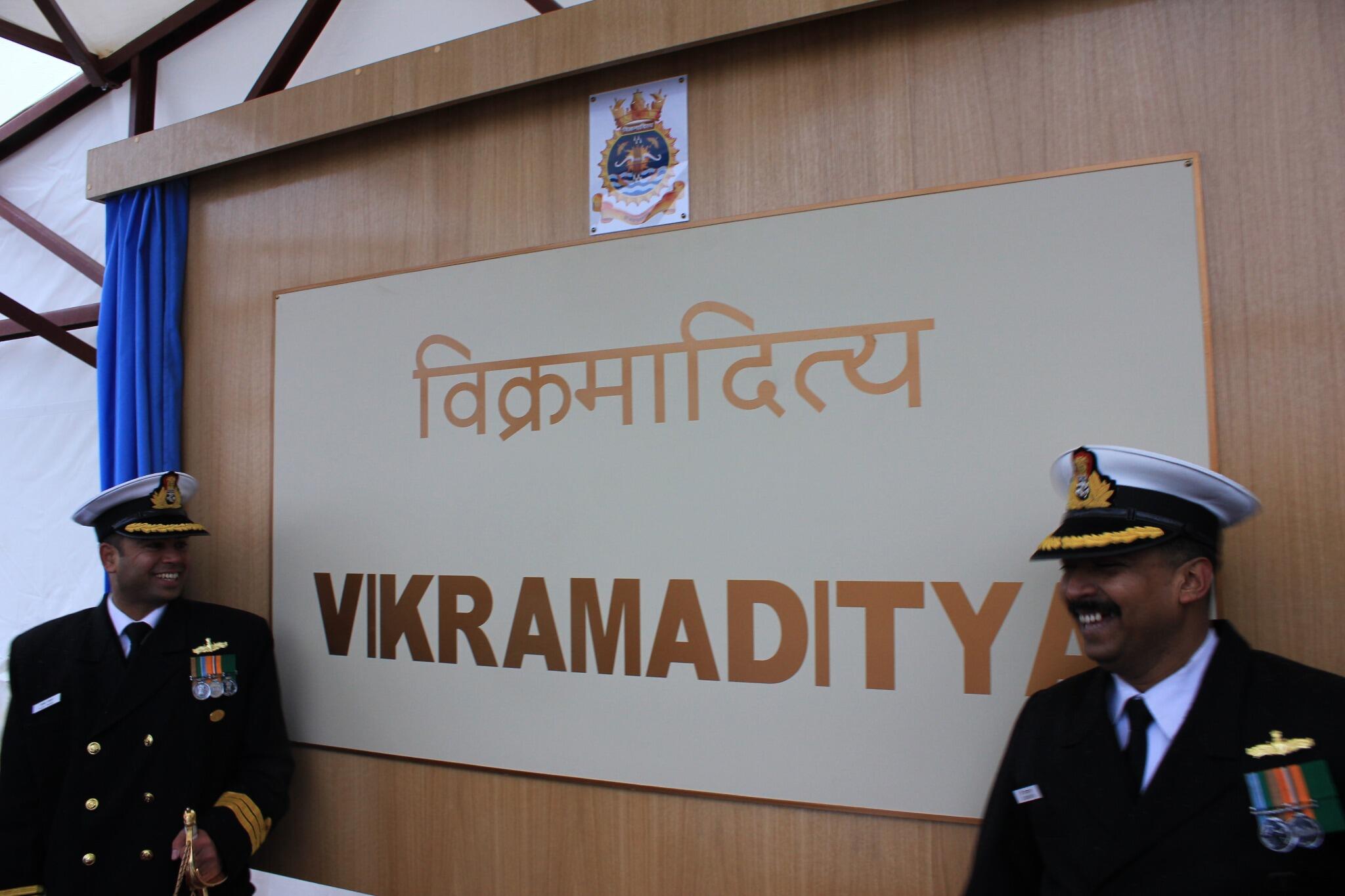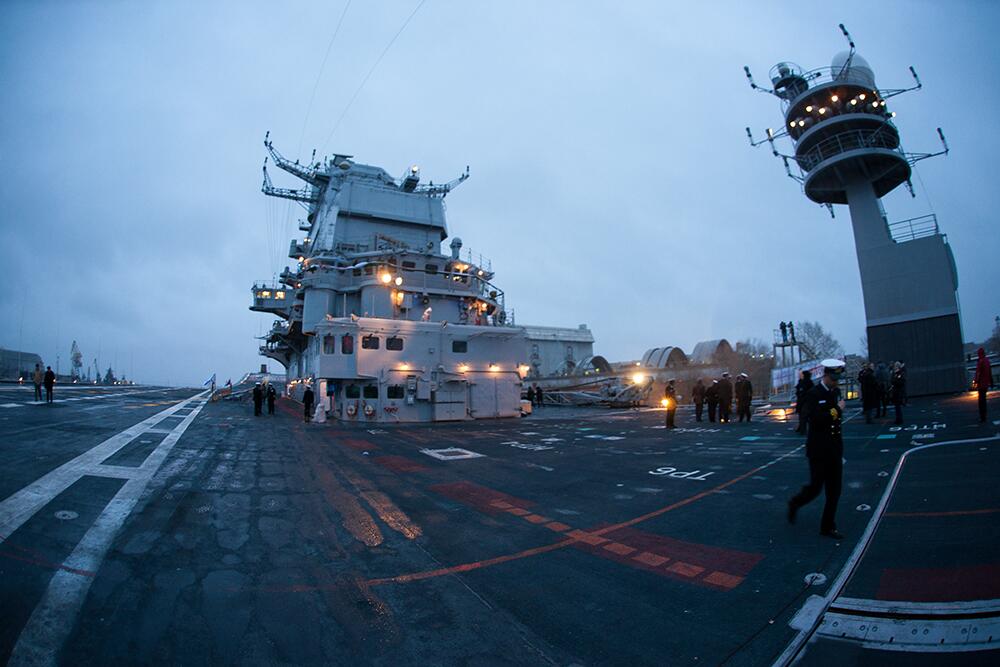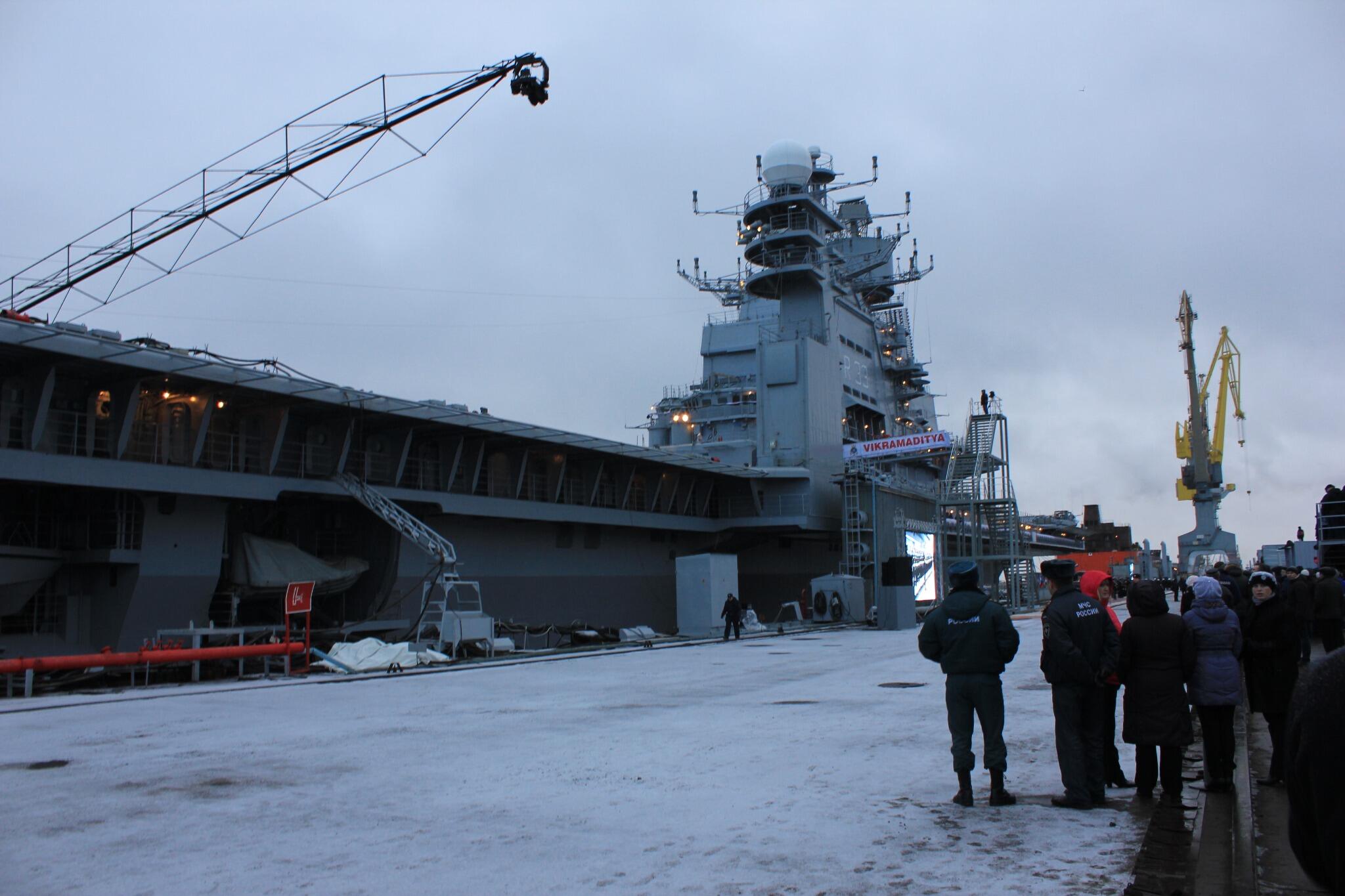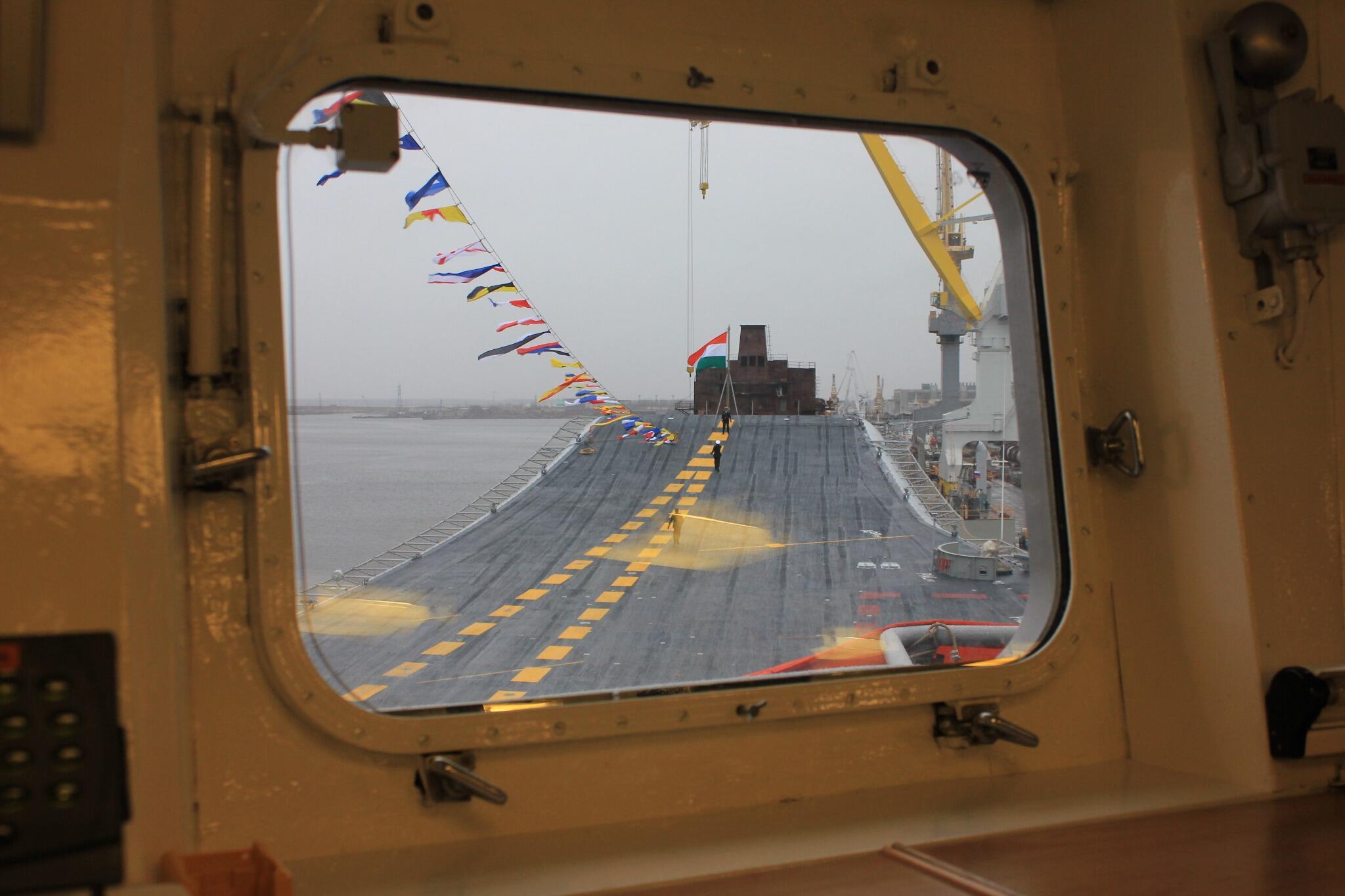Navy to get refurbished Vikramaditya tomorrow
At the quay adjoining Sevmash Shipyard’s enormous hull shop no. 55 is the aircraft carrier INS Vikramaditya, getting decked up for its big day. The Cold War–era Russian carrier, which received a new lease of life after a five-year-long controversy-ridden period of “modernisation”, will on Saturday be inducted into the Indian Navy. The ceremony will be attended by Defence Minister A.K. Antony, Russian Deputy Prime Minister Dmitry Rogozin and a host of other top officials including the naval chiefs of both countries.
After completion of minor interior works, Vikramaditya will set course for its historic 60-day voyage to Karnataka’s Karwar by the end of November with a 1,600-member Indian crew commanded by Captain Suraj Berry and a Russian surety team comprising 183 technicians, who will stay back in India for a year to ensure that the 44,500-tonne behemoth has a smooth sail.
A Talwar-class frigate and fleet tanker, INS Deepak, will escort Vikramaditya, which will be eventually joined by three other Indian vessels on way to its homeport at Karwar.
Andrey Dyachkov, Director-General of Russia’s Northern Shipbuilding Centre, which controls Sevmash, said negotiations were underway between both sides to ensure long-term fruitful service support to the carrier.
“The ship has been modernised and repaired. This allows us to say that it will be able to serve the Indian Navy for 40 years. Its life can be further enhanced if properly maintained. So we can safely say that it’s a whole new ship,” he told a group of Indian journalists.
Elaborating on the sea trials of the Vikramaditya, Sergey Novoselov, Head of the Military Technical Cooperation Division of Sevmash, said the carrier did exceedingly well during its trials in the White Sea that began on July 3.
“We’ve met all specifications and it attained a top speed of 29.5 knots without any glitch… The flight trials were witnessed by Vice-Admiral Shekhar Sinha, Flag Officer Commanding-in-Chief of India’s Western Naval Command. Out of the 8,600 miles the carrier sailed during trials, 1,700 miles were done under the command of Captain Berry, its Commanding Officer. There were more than 3,200 people aboard including 1,000-odd personnel from the Navy. However, the camaraderie was so good that we didn’t need help from the over 80 translators aboard as trials came to a close. Rear Admiral R. Hari Kumar [who previously commanded INS Viraat] headed the carrier acceptance team,” said Mr. Novoselov.
Officials of Sevmash said the trials also demonstrated the strength of the fortified hull of Vikramaditya. To a query on the carrier’s boilers, which malfunctioned during trials last year, leading to another spell of delay in delivery, Mr. Dyachkov said the yard had replaced asbestos with “another material” on the firebrick-wall at the suggestion of the Indian Navy. “After it failed, it was realised that asbestos was the best and that it would not jeopardise the health of seamen. So we installed asbestos and our decision was proved correct during trials,” he said.
On the issue of cost-escalation, Mr. Dyachkov said initially it wasn’t possible to fathom the scope of work on the vessel. The Indian Navy understood that deeper repairs and refurbishment became inevitable, he said. Mr. Novoselov said 2,500 km of cable network and 3,000 km of pipes were fully replaced. “Besides, all radio and electronic warfare equipment, fans, pipes and the like are new.”
Igor Leonav, chief commissioner of Sevmash, who is heading the guarantee team to India, said the carrier controlled 778 flights during trials. There were 88 landings, too, all piloted by Russians. The carrier’s jamming capability was demonstrated when the Sukhoi-33s, Kamovs, MiG-29s and the early warning aircraft A-50 all failed to paint it on their radars, he said. The carrier’s radar, on the contrary, could pick oncoming aircraft from a distance of 350-400 km, said Mr. Leonav.
(Vikramaditya is being delivered without any air defence capability, as it is devoid of any surface-to-air missile or close-in weapon systems, which would be retrofitted later).
All systems, however, needed fine-tuning, which would be done during its voyage to India. While negotiations for refurbishment and procurement of Admiral Gorshkov began in 1994, the contract was signed in April 2004.
The Navy, in a release on Thursday, called the carrier a game-changer. .

